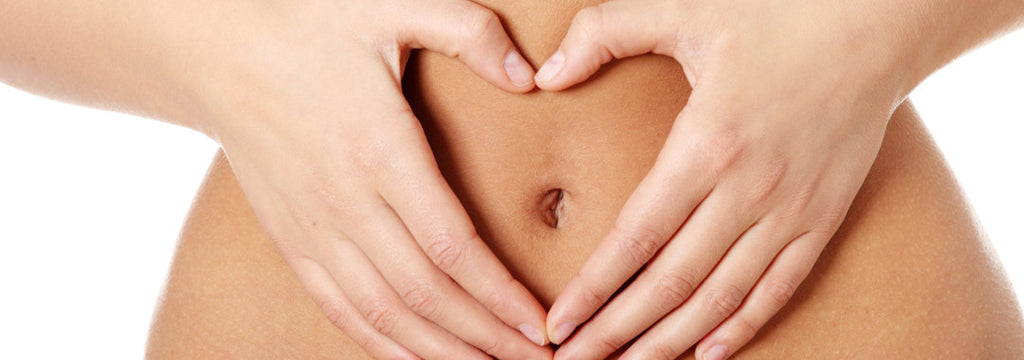
We’ve all been there. Accidental gluten exposure, or getting "glutened,” can wreak havoc on your system and leave you with some pretty serious symptoms to manage.
The good news is, there are steps you can take to help your body heal and recover. Help your gut combat the trauma with these six important steps!
When you’ve effectively eliminated gluten from your diet, reintroducing it in even the smallest amounts can be devastating. Symptoms of gluten exposure can include muscle and joint pain, fatigue, bloating, nausea, stomach disturbances, headaches, irritability, brain fog, rashes and even depression and anxiety.
The severity and length of your symptoms will depend on a host of factors, including the amount of gluten consumed and the health of your digestive tract. Additionally, how long it takes to notice the damage varies from person to person. Some people can feel the effects of gluten exposure instantly, others only feel it after 24 hours, and there are also those who feel little to no physical symptoms at all.
While symptoms range from incredibly mild to debilitating – it is important for everyone to provide extra care to their bodies after gluten exposure. Follow these six steps to help nourish and heal your body.
1. Hydrate:
Water is an essential aid to all body systems during crisis. It also does the ground work to eliminate waste and toxins from the body. Staying hydrated will not only help your body’s systems operate effectively, it will also keep you more refreshed, alert, and better capable to cope with the symptoms of gluten exposure!
2. Take a Quality Probiotic:
Probiotics are a crucial component to gut health year round, but can be even more important when dealing with a gut in crisis. Find a highly concentrated probiotic and double up on the days following gluten exposure.
3. Commit to Self-Care:
Accept that you are sick and that healing may take some time. Rest when you need to and keep in mind that symptoms of gluten exposure can include anxiety and stress, so go easy on yourself! Be open to communicating your discomfort to others and ask for help if you need to. Also, sleep is your friend when combatting gluten exposure! When our bodies sleep, they are most active in healing and repairing. Get plenty of rest and take a break from physical activity for a couple of days to help your body heal.
4. Try Digestive Enzymes:
Digestive enzymes can help you digest your food more effectively and lessen some of the gastrointestinal symptoms following gluten exposure. While digestive enzymes can be an important step in gut health, be wary of special enzyme tablets claiming to rid your body of gluten, as there is no scientific basis for these claims.
5. Load Up on Bone Broth:
Bone broth is rich in anti-inflammatory minerals, digestion-soothing nutrients, and natural, gut-healing gelatin. It also nourishing for the entire body and super hydrating. Keep some bone broth on hand in the freezer, and if you are accidentally exposed to gluten, you’ll have some of this superfood on hand to combat symptoms.
6. Heal Your Gut With Food:
Foods high in antioxidants can help your gut combat symptoms after gluten exposure by protecting your cells from additional damage. Blueberries and lemons are full of antioxidants and are a great option. Raw beets are great as well due to their anti-inflammatory properties. Lastly, studies have shown that peppermint oil and coated peppermint capsules work to reduce unhealthy bacteria in the gut and can help alleviate some of the gas, bloating and discomfort associated with gluten exposure. Peppermint tea can be a great option as well!
With celiac disease and gluten intolerance, it’s important to act preemptively and make gut health a top priority. The healthier and stronger your gut, the better off you will be in an accidental exposure situation. Maintaining a healthy diet rich with vitamins, nutrients, and a good probiotic will keep your immune system and gut ready and waiting to combat accidental gluten exposure.
It is also important to stay vigilant when dining out to lessen the chances of getting glutened. Does the restaurant take special precautions in order to avoid cross-contamination? Does your waiter give you the impression that the staff has a good understanding of celiac, gluten, and how to cater to your dietary needs? Does the restaurant use a dedicated fryer or separate preparation spaces for gluten-free meals? These are all important questions to ask when dining out, and can help you avoid a situation where you may do some serious harm to your body.
What are some of the ways you’ve found most effective to feel better after gluten exposure?



Comments
Anne-Marie:
Thank-you for your most informative web page, I have learnt so much. I started getting reactions from bread at age 62, found out later after tests that I was celiac. I am one of the lucky ones that don’t get serious reactions from eating gluten but I know it is damaging my gut so I watch my diet. Thank- you once again for all the helpful information.
Regards Anne-Marie
May 25, 2016
Charles Nierling:
I was diagnosed with celiac in 2010 after months on antibiotics for diarrhea, the antibiotics killed everything in my gut, good, bad and indifferent. I was gluten free for several years. One day I tried a hamburger, no adverse side effects. I slowly added more gluten to my diet thinking that I had defeated celiac. After a year I started experiencing episodes of diarrhea. Thinking that the celiac had returned, I thought all I had to do was return to a gluten-free diet. After several weeks I decided to have a gastrointestinal check up. The exam showed that I had esophageal cancer. Fourtionately the cancer was in an early stage and complete removal was surgically performed. My doctor informed me that if I had returned to the gluten free diet and not have sought another opinion I would have deceased in less than a year. So, bottom line, it pays to have a professional second opinion and a through exam. Your life may depend on it.
May 24, 2016
Leave a comment